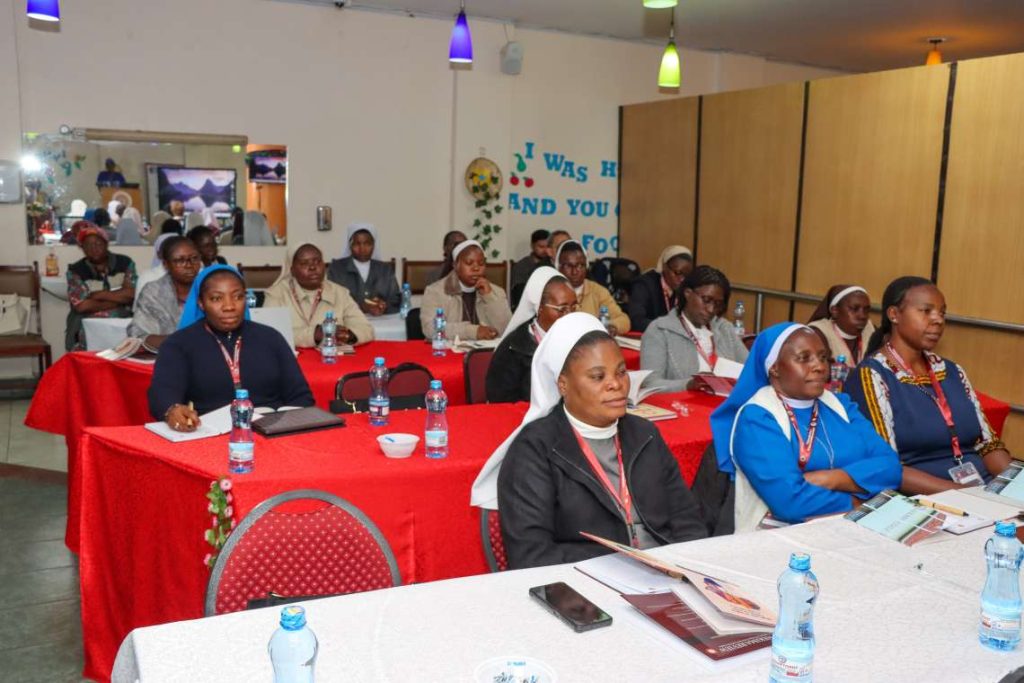Nairobi conference amplifies voices of African women theologians…reports Asian Lite News
A landmark conference in Nairobi has put the spotlight on the vital role of women in shaping the Catholic Church’s future, particularly in Africa. Titled “Synodality in Action: Emerging Ecclesiologies, Vitality of Women and Discerning Leadership for the 21st Century”, the gathering ran from 3 to 6 September and brought together theologians, academics, clergy, and pastoral leaders from Africa, Europe, and the United States.
Tackling the gender gap in theology
Despite decades of progress, Catholic theological scholarship remains largely male-dominated, especially in seminaries preparing men for priesthood. Sister Jacinta Auma Opondo (FSSA), Deputy Principal for Academic Affairs at Hekima University College and the conference chairperson, said the imbalance “undermines the mission of the Church.” She explained that the meeting was rooted in Hekima’s mission to amplify African women’s theological voices, noting that “forty years after Hekima opened its doors to women, their voices are still underrepresented. This conference seeks to change that by creating a global platform.”
Building on last year’s inaugural African Women Theologians Conference, this year’s gathering focused on synodality—the Church’s call to walk together in communion and shared mission. Its purpose was not only to exchange experiences but also to strengthen women’s leadership in theology and pastoral life.
Synodality and inclusion
Participants stressed that Pope Francis’ vision of synodality cannot be realised without the full participation of women. Sr. Jacinta underscored the need for education, networking, and leadership opportunities to equip women theologians to shape both academic and parish life. A key aim is to build a network of African women scholars who can mentor younger voices, collaborate across disciplines, and influence theological education and pastoral initiatives.
Healing, care, and hope
Among the participants was Sr. Gisela Rfanyu, a Holy Union Sister and psycho-spiritual therapist, who emphasised the healing dimension of theology. She argued that “counselling promotes listening, which is vital for building a synodal Church,” adding that theology must be lived out in care, inclusivity, and justice.

From dialogue to action
The conference identified practical strategies for integrating women’s perspectives into Church structures: joint formation programmes for men and women, implementing canon law provisions on shared ministries, creating listening circles, and grounding theology in African realities. While challenges such as resistance to change and resource constraints were acknowledged, organisers expressed confidence that partnerships and dialogue could overcome them.
Spotlight on Watawa Wa Taa
A recurring theme was the initiative Watawa Wa Taa, founded by Sr. Mumbi Kigutha (CPPS), which documents and celebrates the contributions of African women religious in ministries of justice, peace, education, and pastoral care. “Much of women’s work in the Church is invisible,” said Sr. Jacinta, adding that Watawa Wa Taa ensures these stories inspire others and enrich the synodal journey.
For Sr. Gisela, the initiative has been transformative: “When you educate a woman, you educate a nation. Watawa Wa Taa supported my theological studies and inspired me to pursue a PhD in Justice and Peace Studies to help heal my war-torn country.”
Walking together
As the conference concluded, participants affirmed that the African Church must embrace synodality as a lived reality. Sr. Jacinta expressed hope that the gathering would catalyse the integration of women into decision-making structures: “Empowered women theologians mean a stronger Church, one that is inclusive, just, and responsive to our continent.”
The 2025 African Women Theologians Conference thus moved beyond theory, embodying synodality through dialogue, learning, and collaboration—a step not just toward inclusion, but toward transformation.














